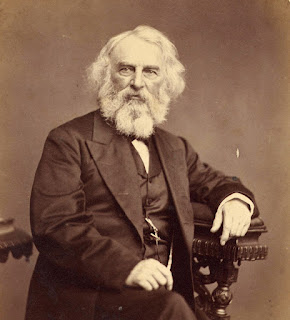Search This Blog
Click 4 Freedom is a blog set up to help the people defense force and refugees in Karenni State.
Featured
- Get link
- X
- Other Apps
Alfred Noble & Noble Prize
Alfred Noble & Noble Prize
Alfred Nobel was born on 21 October 1833 in Stockholm,
Sweden, into a family of engineers. He was a chemist, engineer, and
inventor. In 1894, Nobel purchased the Bofors iron and steel mill, which he
made into a major armaments manufacturer. Nobel also invented ballistite. This
invention was a precursor to many smokeless military explosives, especially the
British smokeless powder cordite. As a consequence of his patent claims, Nobel
was eventually involved in a patent infringement lawsuit over cordite. Nobel
amassed a fortune during his lifetime, with most of his wealth coming from his
355 inventions, of which dynamite is the most famous.
In 1888, Nobel was astonished to read his own obituary, titled "The merchant of death is dead", in a French newspaper. It was Alfred's brother Ludvig who had died; the obituary was eight years premature. The article disconcerted Nobel and made him apprehensive about how he would be remembered. This inspired him to change his will.On 10 December 1896, Alfred Nobel died in his villa in San Remo, Italy, from a cerebral haemorrhage. He was 63 years old.
Nobel Foundation
According to his will and testament read in Stockholm on 30
December 1896, a foundation established by Alfred Nobel would reward those who
serve humanity. The Nobel Prize was funded by Alfred Nobel's personal fortune.
According to the official sources, Alfred Nobel bequeathed most of his fortune
to the Nobel Foundation that now forms the economic base of the Nobel
Prize.
The Nobel Foundation was founded as a private organization
on 29 June 1900. Its function is to manage the finances and administration of
the Nobel Prizes. In accordance with Nobel's will, the primary task of the
foundation is to manage the fortune Nobel left. Robert and Ludvig Nobel were
involved in the oil business in Azerbaijan, and according to Swedish historian
E. Bargengren, who accessed the Nobel family archive, it was this
"decision to allow withdrawal of Alfred's money from Baku that became the decisive
factor that enabled the Nobel Prizes to be established". Another
important task of the Nobel Foundation is to market the prizes internationally
and to oversee informal administration related to the prizes. The foundation is
not involved in the process of selecting the Nobel laureates.In many
ways, the Nobel Foundation is similar to an investment company, in that it
invests Nobel's money to create a solid funding base for the prizes and the
administrative activities. The Nobel Foundation is exempt from all taxes in
Sweden (since 1946) and from investment taxes in the United States (since
1953).Since the 1980s, the foundation's investments have become more
profitable and as of 31 December 2007, the assets controlled by the Nobel Foundation
amounted to 3.628 billion Swedish kronor (c. US$560 million).
Foundation capital and cost
The capital of the Nobel Foundation today is invested 50% in
shares, 20% bonds and 30% other investments (e.g. hedge funds or real estate).
The distribution can vary by 10 percent.At the beginning of 2008, 64% of
the funds were invested mainly in American and European stocks, 20% in bonds,
plus 12% in real estate and hedge funds.
Prize in Economic Sciences
In 1968, Sweden's central bank Sveriges Riksbank celebrated
its 300th anniversary by donating a large sum of money to the Nobel Foundation
to be used to set up a prize in honour of Alfred Nobel. The following year, the
Sveriges Riksbank Prize in Economic Sciences in Memory of Alfred Nobel was
awarded for the first time. The Royal Swedish Academy of Sciences became
responsible for selecting laureates. The first laureates for the Economics
Prize were Jan Tinbergen and Ragnar Frisch "for having developed and
applied dynamic models for the analysis of economic processes".The board of the Nobel Foundation decided that after this addition, it would
allow no further new prizes.
The Nobel Prizes are five separate prizes that, according to
Alfred Nobel's will of 1895, are awarded to "those who, during the
preceding year, have conferred the greatest benefit to Mankind." Alfred
Nobel was a Swedish chemist, engineer, and industrialist most famously known
for the invention of dynamite. He died in 1896. In his will, he bequeathed all
of his "remaining realisable assets" to be used to establish five
prizes which became known as "Nobel Prizes." Nobel Prizes were first
awarded in 1901.
Awarded for : Contributions that have conferred the greatest benefit to Mankind in the areas of Physics, Chemistry, Physiology or Medicine, Literature, and Peace.
Country : Sweden (all prizes except the Peace Prize) ,Norway (Peace Prize only)
Presented by Royal Swedish Academy of Sciences (Physics, Chemistry and Economic Sciences) ,Nobel Assembly at the Karolinska Institute (Physiology or Medicine) ,Swedish Academy (Literature) ,Norwegian Nobel Committee (Peace)
Reward(s) : A gold medal, a diploma, and a monetary award of 10 million SEK, approx. US$1,145,000 (2020)
First awarded : 1901; 121 years ago
Number of laureates : 603 prizes to 962 laureates (as of 2020)
Nobel Prizes are awarded in the fields of Physics,
Chemistry, Physiology or Medicine, Literature, and Peace (Nobel characterized
the Peace Prize as "to the person who has done the most or best to advance
fellowship among nations, the abolition or reduction of standing armies, and
the establishment and promotion of peace congresses"). In 1968,
Sveriges Riksbank (Sweden's central bank) funded the establishment of the Prize
in Economic Sciences in Memory of Alfred Nobel, to also be administered by the
Nobel Foundation. Nobel Prizes are widely regarded as the most
prestigious awards available in their respective fields.
Award ceremonies
Except for the Peace Prize, the Nobel Prizes are presented
in Stockholm, Sweden, at the annual Prize Award Ceremony on 10 December, the
anniversary of Nobel's death. The recipients' lectures are normally held in the
days prior to the award ceremony. The Peace Prize and its recipients' lectures
are presented at the annual Prize Award Ceremony in Oslo, Norway, usually on 10
December. The award ceremonies and the associated banquets are typically major
international events. The Prizes awarded in Sweden's ceremonies are
held at the Stockholm Concert Hall, with the Nobel banquet following
immediately at Stockholm City Hall. The Nobel Peace Prize ceremony has been
held at the Norwegian Nobel Institute (1905–1946), at the auditorium of the University
of Oslo (1947–1989), and at Oslo City Hall (1990–present).
Prizes:
Medals
The Nobel Foundation announced on 30 May 2012 that it had
awarded the contract for the production of the five (Swedish) Nobel Prize
medals to Svenska Medalj AB. Between 1902 and 2010, the Nobel Prize medals were
minted by Myntverket (the Swedish Mint), Sweden's oldest company, which ceased
operations in 2011 after 107 years. In 2011, the Mint of Norway, located in
Kongsberg, made the medals. The Nobel Prize medals are registered trademarks of
the Nobel Foundation.
All medals made before 1980 were struck in 23 carat gold.
Since then, they have been struck in 18 carat green gold plated with 24 carat
gold. The weight of each medal varies with the value of gold, but averages
about 175 grams (0.386 lb) for each medal. The diameter is 66 millimetres (2.6
in) and the thickness varies between 5.2 millimetres (0.20 in) and 2.4
millimetres (0.094 in). Because of the high value of their gold content and
tendency to be on public display, Nobel medals are subject to medal
theft.During World War II, the medals of German scientists Max von
Laue and James Franck were sent to Copenhagen for safekeeping. When Germany
invaded Denmark, Hungarian chemist (and Nobel laureate himself) George de
Hevesy dissolved them in aqua regia (nitro-hydrochloric acid), to prevent
confiscation by Nazi Germany and to prevent legal problems for the holders.
After the war, the gold was recovered from solution, and the medals re-cast.
Diplomas
Nobel laureates receive a diploma directly from the hands of
the King of Sweden, or in the case of the peace prize, the chairman of the
Norwegian Nobel Committee. Each diploma is uniquely designed by the
prize-awarding institutions for the laureates that receive them. The
diploma contains a picture and text in Swedish which states the name of the
laureate and normally a citation of why they received the prize. None of the
Nobel Peace Prize laureates has ever had a citation on their diplomas.
Award money
The laureates are given a sum of money when they receive
their prizes, in the form of a document confirming the amount awarded .The
amount of prize money depends upon how much money the Nobel Foundation can
award each year. The purse has increased since the 1980s, when the prize money
was 880,000 SEK per prize (c. 2.6 million SEK altogether, US$350,000 today). In
2009, the monetary award was 10 million SEK (US$1.4 million). In June
2012, it was lowered to 8 million SEK. If two laureates share the prize in
a category, the award grant is divided equally between the recipients. If there
are three, the awarding committee has the option of dividing the grant equally,
or awarding one-half to one recipient and one-quarter to each of the
others .It is common for recipients to donate prize money to
benefit scientific, cultural, or humanitarian causes.
Source: https://en.m.wikipedia.org/wiki/Nobel_Prize
Comments
Popular Posts
The Builders by Henry Wadsworth Longfellow
- Get link
- X
- Other Apps





.jpg)



Nobel Foundation consists of a board of five Swedish or Norwegian citizens, with its seat in Stockholm.
ReplyDeleteThanks to a lot of knowledge, we are proud to have a Nobel Laureate in our country.
ReplyDelete💄💄💄
ReplyDeleteOk
ReplyDeleteMyanmar’s (CDM) against the military regime had also been nominated for the Nobel Peace Prize for 2022 by six academics at the University of Oslo in Norway 🤞
ReplyDeleteThanks for sharing 🤍.
ReplyDeleteGreat man for the humanity
ReplyDeleteGive me liberty or dead.
ReplyDelete#Plato
Be safe.
ReplyDeleteThanks a lot. Be safe.
ReplyDeleteThank you.
ReplyDeleteThank you for the knowledge sharing.
ReplyDeleteHave a great day. Thanks for sharing.
ReplyDeleteThanks
ReplyDelete